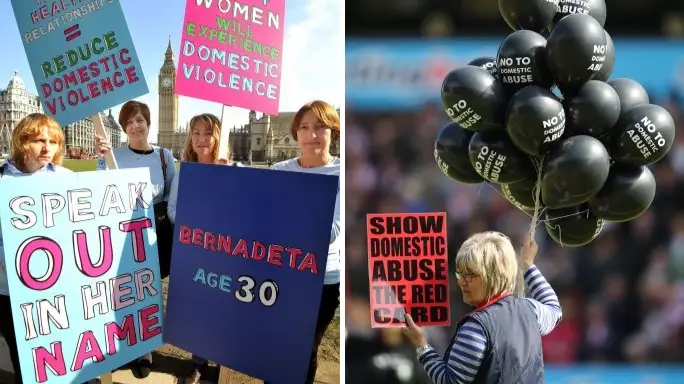
For many, the mention of domestic abuse rouses images of physical violence which leaves behind visible scars, bruises and black eyes. In reality it spans way beyond this, and can have a "horrendous" impact on the victim.
Abuse can be financial, emotional, and psychological too, and absolutely anyone can be subject to it.
It's a petrifying thought that 4.6 million women in the U.K have been victims of domestic abuse since the age of 16. What makes this even more concerning is that this statistic, published by the Crime Survey of England and Wales (CSEW), is just estimated and there are probably thousands of unreported cases each year.
Charities claim domestic abuse is an incident or a pattern of incidents of controlling, threatening, degrading and violent behaviour, including sexual violence.
We spoke to relationship charity Relate for advice and support on emotional domestic abuse...
Advert
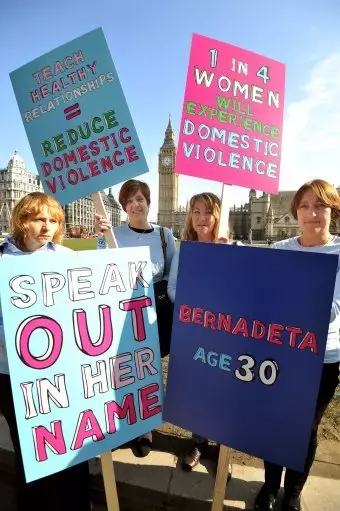
Domestic abuse campaigners. Credit: PA Images
How Do I Know It's Emotional Abuse?
It's a huge grey area, and something a lot of people are completely unclear on. Are you just no longer getting along with your other half or are you being controlled by them?
Advert
According to Relate's sex and relationship therapist Ammanda Major, emotional abuse can "strip a victim of their confidence, their identity as a person, make them feel worthless and stupid".
The abuser will probably tell you that too, and you may feel isolated, alone and frightened, as if there is no way out. They may want to spend all their time with you, and make you feel like you shouldn't be spending time with anyone else because you have them instead.
"Abusers will often say 'I'm only doing this because I love you and because I know what's best for you' which further makes the victim feel like they have no control over their lives and what they do," says Ammanda.
Advert
In most cases, the perpetrator is either a current or ex-partner, but may also be a family member or carer. Victims are not always women either, which it's often just presumed.

Credit: PA Images
But Where Does It Cross The Line?
"On occasion, we might all say unkind things to a partner, and have rows with a partner. That's a normal part of being in a couple in a relationship - people have disagreements.
"What we are talking about here is consistent behaviour of this type to another person. The line is often blurred," continues Ammanda.
Their constant contact can come under the guise of wanting to speak to you, but they're actually checking up on you on where you are and who you're with.
They might find it difficult for you to have an opinion, want to make all your decisions for you like where you're allowed to go, and what you can eat or wear. It might be hard for them for you to spend time with anyone else other than them.
Emotional abuse is consistently telling someone they are rubbish and putting them down, and isn't just a one-off row.
It may be confusing for a victim, as the abuser may switch between being supportive and helpful, to verbally abusive and controlling, but you partner doesn't have to raise their hand to you for it to be abuse.
Advert
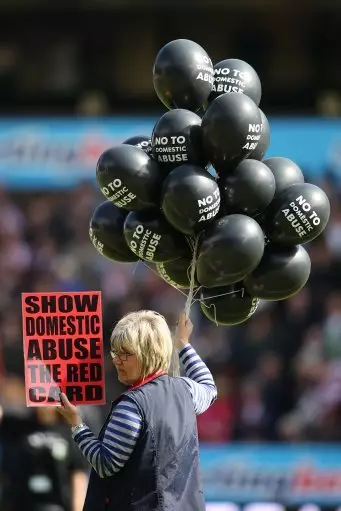
Credit: PA Images
What Are The Effects?
"Being a victim of emotional abuse often leads to depression, anxiety, physical ill health not just mental health, a general sense of low self-worth, and no confidence," says Ammanda. "There are very serious repercussions on people's mental health where they are victims of emotional abuse."
Advert
It's different than just having an argument with your partner though.
"It's consistent, it's targeted, it's intended to make someone feel worthless," says Ammanda.
"Sometimes the victim may feel that no one will believe them because their partner is so nice to everyone else."
Physical abuse may leave someone with bruises or a means of identifying abuse, but not always. Serious emotional abuse can leave invisible scars, which can take a long time to recover from.
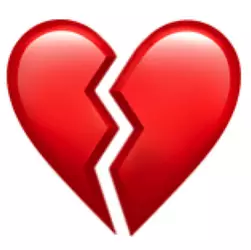
Credit: Apple
Can My Relationship Come Back From Emotional Abuse?
The abuser needs to be able to take full responsibility for what they've done or what they are doing, but they will also need support too and need to be challenged on their actions.
Whether the relationship can survive and whether it's a safe thing to try repair is a different matter, which no one can truly know.
"If we're talking about serious emotional abuse, part of it is that the person needs help and support to see what is happening to them," says Ammanda. "It's very often about that person leaving that relationship to become more emotionally safe."

Credit: PA Images
What Will Happen To The Abuser?
Laws have been pushed through to try and protect victims. The Serious Crime Act 2015 has a punishment of up to five years for 'controlling or coercive behaviour' towards another person in an intimate or family relationship.
Emotional abuse carries the same level of punishment as physical abuse, and people have been prosecuted for it.
The only difference is that is the means that the victim is being abused by. The effects are the same: a sense of fear, anxiety, isolation, depression and worthlessness.
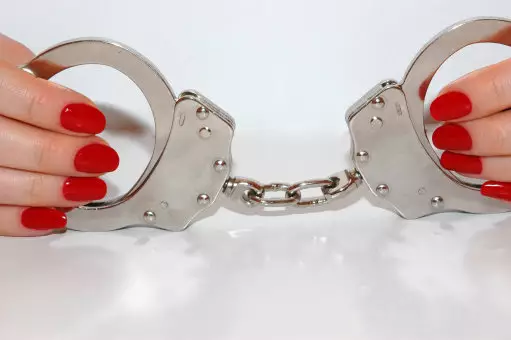
Credit: PA Images
I'm Worried My Friend's Being Abused. How Can I Help?
A black eye or broken arm would often set off alarm bells for a friend, but it's harder to tell if someone is a target of emotional abuse from their partner.
There are things you can look out for though, like if you friend has a new partner and has become withdrawn, quiet, depressed or anxious, and seems unable to talk about the relationship.
Your friend may have to be home by a certain time, or have to keep texting their partner to let them know where they are.
You can then help them by checking in with them, to make sure that everything is okay to give them an opportunity to speak to someone, advises Ammanda.
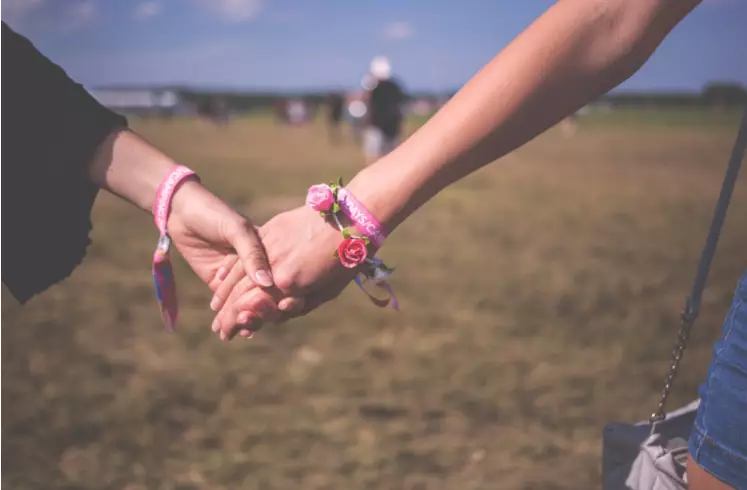
Credit: Pexels
How Can I Get Out?
"If you're a victim you need to realise that you are one and very often abusers will convince the victim that they are in the wrong," says Ammanda.
She adds that victims often feel unable to seek support because they are so convinced by their abuser that they are a bad person, and no one will believe or want to help them.
The rise in social media and digital platforms now means that abuse can be enabled much easier, but it does offer a way for victims to seek help too.
If you realise that you are on the receiving end of constant criticism, constant anger, constant checking of your phones and social media pages, you need to find support.
Talk to someone who can help you, like a GP, a counsellor, a charity like Women's Aid, a family member or friend, and go forward from there. There's always someone to help.

Credit: Pexels
You can obtain useful advice from the following charities:
Relate: 0300 100 1234
Refuge: 0808 2000 247
Women's Aid: 0808 2000 247
Live Fear Free: 0808 8010 800
The Men's Advice Line: 0808 8010 327
Featured Image Credit: PA ImagesTopics: domestic abuse